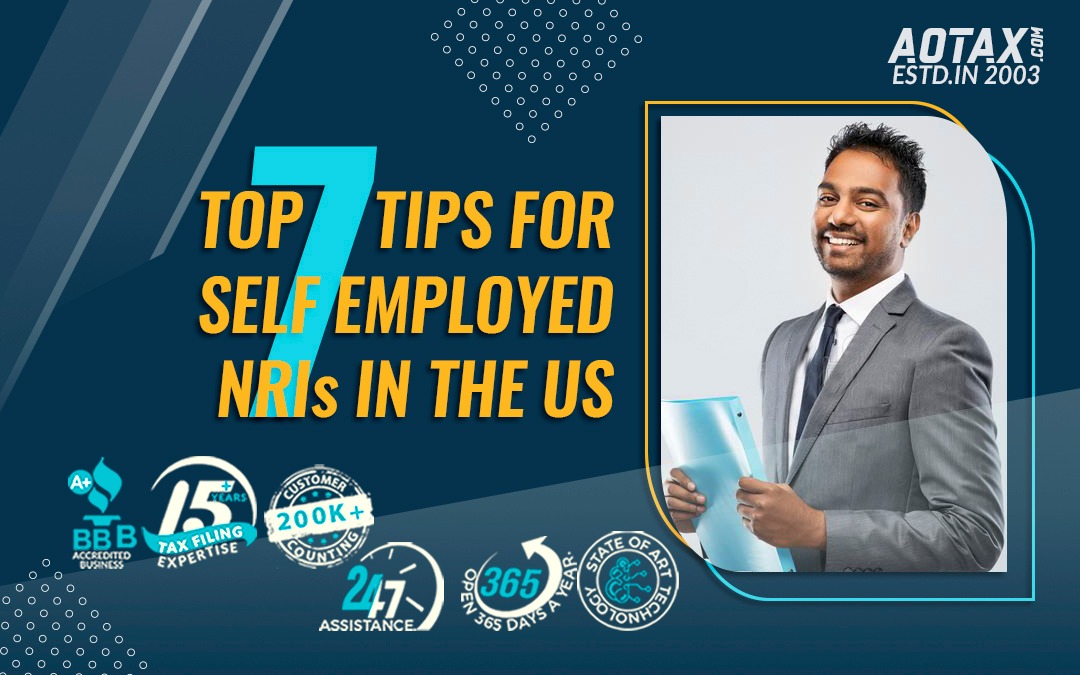Top 7 tips for Self Employed NRIs in the US
The person sitting next to you on your flight could be running a small-scale successful business. Working parents now choose to work from home more often than not. The changes in the landscape of career options have been vast over the past few years. Thus, it is no secret that more and more people are willing to take risks and explore more career options that are not only better paying but fulfilling as well. If you are an individual who wants to explore self-employment or are an NRI who wishes to look for self-employment options, you also need to be aware of how taxes work. Here are the top 7 tips, self-employed NRIs which will help you make the most of taxes.
Proper Research
The first step to successful tax filing begins with proper research. Do you due diligence in finding out the total income for a fiscal year. You would also want to be aware of the list of deductions applicable for you. You must also be aware of the deadlines by which you must file your taxes and start acting accordingly. For instance, if your self-employment income exceeds INR 400 for a fiscal year, you are required to file your taxes.
Status
Self-employment doesn’t necessarily mean that you ought to have a company or firm registered to your name or even the income doesn’t have to be your primary source. Given the vast landscape, you could have a primary job and work on your passion over the weekends and earn some money out of it. It is essential that you report all such incomes in your tax returns.
Proper Documents
While preparing for tax returns, having all the relevant documents will help you save a considerable amount of time as well as confusion. From the beginning of a fiscal year, ensure that you keep all the receipts for expenses that you wish to claim, relevant forms, rent bills or mortgage bills if you work from home etc. in a separate folder. Documents such as Form 1099-K or 1099-Misc might also be needed. Having them at a single place will ensure that you have a smooth tax filing process.
Tax Estimations
If you are work for an organization, they take care of withholding applicable taxes before crediting your salary. However, for self-employed individuals, things are a bit different. Since there aren’t any fixed sources of income, you out to estimate your taxes and pay them on a quarterly basis. For the current year, if your tax bill is more than $1,000 you will have to pay estimated taxes.
Work-Related Expenses
The IRS allows individuals to claim deductions on a number of work-related expenses. For example, if you bought a computer or a laptop for your work, you can claim the amount as deduction. You can even claim expenses for driving down to meet a client for business purpose. Keeping a track of such expenses will help you tackle the tax return process in a better way.
Required Forms
Self-employed individuals usually document their income in Schedule C along with any profit or loss of the business. If you own a business with simple earning structure, you would need to file Schedule C-EZ. Thus, understanding the right form depending on your self-employment type is essential.
Tax-Tools
If the tax filing and return process seems overwhelming, you can take the help of several tax tools available. You would only have to provide the essential information, post which the tools will take care of the rest.
Self-employed individuals can use the above tips to handle taxes or overcome tax phobia in a much better way.


Recent Comments